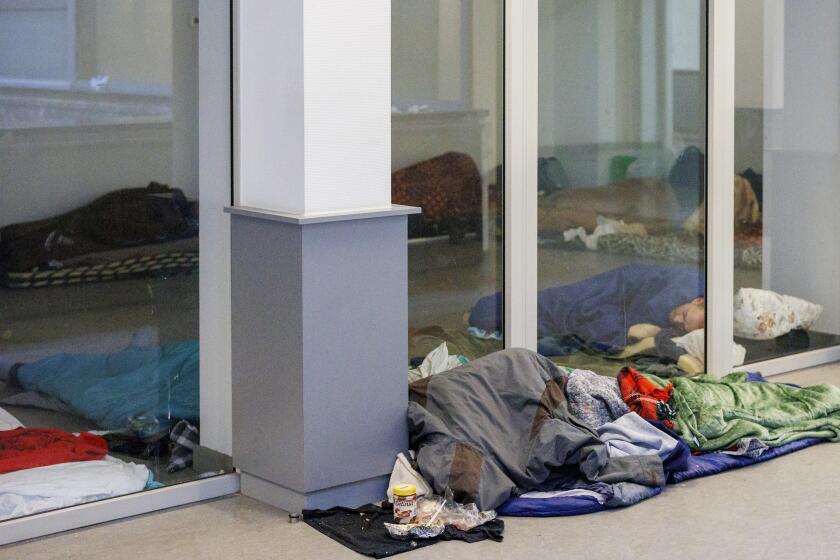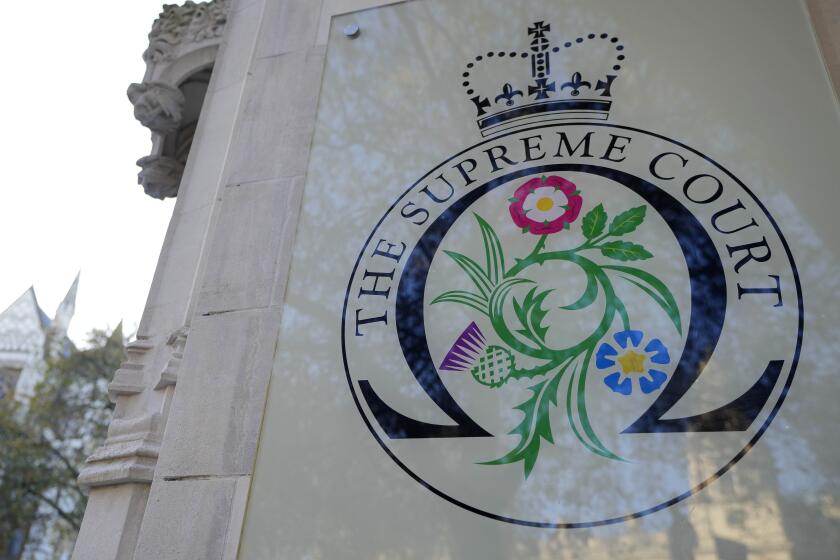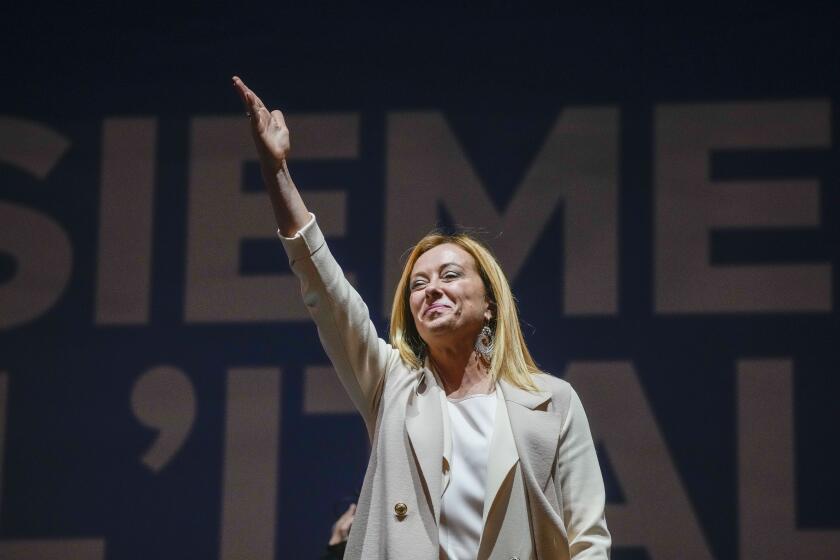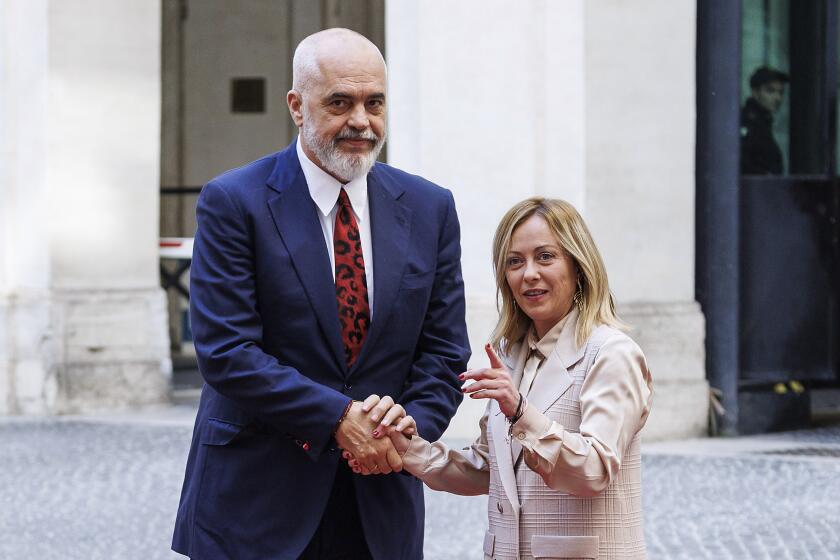In shift to far right, anti-Islam populist Geert Wilders wins big in Dutch elections
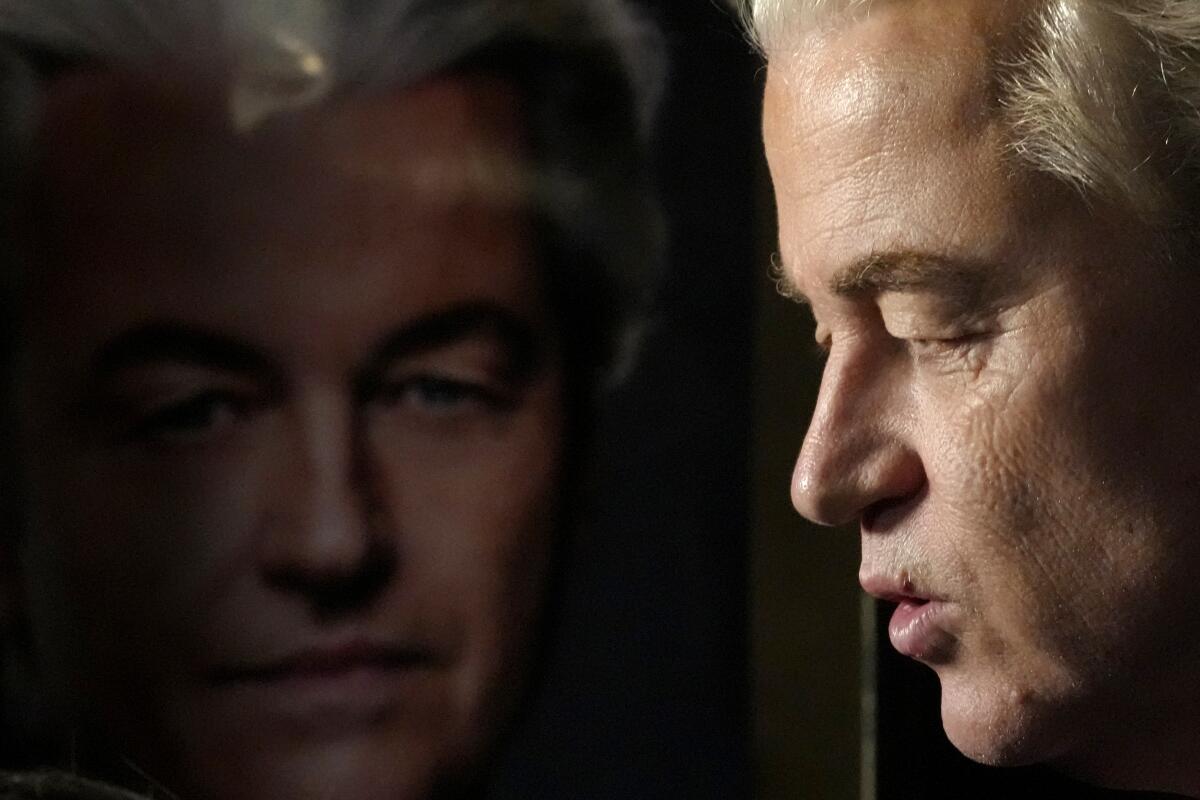
THE HAGUE — Anti-Islam populist Geert Wilders said Thursday that he is ready to join the next Dutch coalition government after he surged to a huge election victory that marked a stunning lurch to the far right for a nation long known as a beacon of tolerance.
The result is sending shock waves through Europe, where far-right ideology is on the rise, and puts Wilders in line to lead talks to form the next governing coalition and possibly become the first far-right prime minister of the Netherlands.
“It is going to happen that the PVV is in the next Cabinet,” Wilders said, using the Dutch abbreviation for his Party for Freedom.
With nearly all votes counted, the party was forecast to win 37 seats in the 150-seat lower house of parliament, two more than predicted by an exit poll when voting finished Wednesday night and more than double the 17 it won at the last election.
Wilders got a standing ovation when he met his party’s lawmakers at the parliament building Thursday morning.
“Can you imagine it? Thirty-seven seats!” he said to cheers.
Asylum applications in the European Union continued to rise in the first half of 2023, putting pressure on the bloc’s limited hosting capacities.
Other political parties were holding separate meetings Thursday to discuss the election’s outcome before the expected arduous process of forming a new governing coalition begins Friday.
Wilders’ election campaign included calls for a referendum on the Netherlands leaving the European Union, a total halt to accepting asylum seekers and migrant restrictions at Dutch borders.
It also advocates the “de-Islamization” of the Netherlands. He says he wants no mosques or Islamic schools in the country, although he has been milder about Islam during this election campaign than in the past.
One of the most prominent Muslim organizations in the Netherlands said it had received emails expressing support since the election result.
Britain’s highest court has ruled that the Conservative government’s contentious plan to send some migrants on a one-way trip to Rwanda is illegal.
“That’s reassuring,” the Contact Group Muslims and Government said in a statement. “In addition, Mr. Wilders has said that he will become prime minister of all Dutch people, regardless of their religion, sex or color. The Netherlands is a state governed by the rule of law and we trust that it is a tolerant country.”
In a statement on its website, the Dutch branch of Amnesty International said: “Yesterday human rights lost. A racist party won the Dutch elections.”
Although known for his harsh rhetoric, Wilders began courting other right-wing and centrist parties by saying in a victory speech that whatever policies he pushes will be “within the law and constitution.”
His victory appeared based on his campaign to curtail migration — the issue that caused the last governing coalition to quit in July — and to tackle issues such as the cost-of-living crisis and housing shortages.
“I think, to be honest, very many people are very focused on one particular problem,” voter Norbert van Beelen said in The Hague on Thursday morning. “It’s all about immigration.”
Italy’s European Union partners are signaling discomfort and vigilance after one of the bloc’s founding members swung far to the political right.
In his victory speech, Wilders said he wants to end what he called the “asylum tsunami,” referring to the migration issue.
“The Dutch will be No. 1 again,” Wilders said. “The people must get their nation back.”
Wilders, long an antagonist who lashed out at Islam, the EU and migrants, was in the past labeled a Dutch version of Donald Trump. His positions brought him close to power, but never fully to it.
But to become prime minister of a country known for compromise politics, he must persuade other party leaders to work with him in a coalition government. That will be tough, as mainstream parties are reluctant to join forces with him and his party. But the size of his victory strengthens his hand in any negotiations.
Wilders called on other parties to constructively engage in coalition talks. Pieter Omtzigt, a former centrist Christian Democrat who built his own New Social Contract party in three months to take 20 seats, said he would always be open to talks.
Experts say the agreement follows a worrying trend of European Union nations looking beyond the bloc’s borders to manage migration.
Kate Parker of the Economist Intelligence Unit said in a written analysis of the election that Wilders’ party “will have to moderate its far-right policy stance” if it is to attract support from Omtzigt’s party and the center-right People’s Party for Freedom and Democracy, also known as VVD, of outgoing Prime Minister Mark Rutte.
The party that finished after Wilders’ in the election results was an alliance of the center-left Labor party and Green Left, which was forecast to win 25 seats. But its leader, Frans Timmermans, made clear that Wilders should not count on a coalition with him.
The historic victory came one year after the win of Italian Prime Minister Giorgia Meloni, whose Brothers of Italy party’s roots were steeped in nostalgia for fascist dictator Benito Mussolini. Meloni has since mellowed her stance on several issues and has become the acceptable face of the hard right in the EU.
Hungarian Prime Minister Viktor Orban, who boasts of turning Hungary into an “illiberal” state and has similarly harsh stances on migration and EU institutions, was quick to congratulate Wilders. “The winds of change are here! Congratulations,” Orban said.
Start your day right
Sign up for Essential California for the L.A. Times biggest news, features and recommendations in your inbox six days a week.
You may occasionally receive promotional content from the Los Angeles Times.
During the final weeks of his campaign, Wilders somewhat softened his stance and vowed that he would be a prime minister for all Dutch people, so much so that he gained the moniker Geert “Milders.”
The election was called after Rutte’s fourth and final coalition government resigned in July after failing to agree to measures to rein in migration. He has been in office for 13 years, making him the Netherlands’ longest-serving leader, and plansto step down once a newcoalition government is formed.
Rutte was replaced by Dilan Yesilgoz-Zegerius, a former refugee from Turkey who could have become the country’s first female prime minister had her party won the most votes.
Instead, it was forecast to lose 10 seats to end up with 24.
The result is the latest in a series of elections altering the European political landscape.
In Slovakia, Spain and Germany, among other countries, populist and hard-right parties have made gains.
More to Read
Sign up for Essential California
The most important California stories and recommendations in your inbox every morning.
You may occasionally receive promotional content from the Los Angeles Times.
